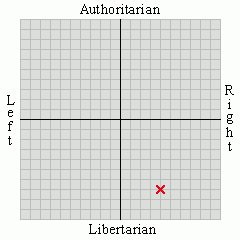Mortgage lending would be “capped” to stop borrowers taking out risky loans under radical Bank of England plans to prevent a repeat of the credit crisis, a senior official has disclosed./facepalm
Charlie Bean, the Bank’s Deputy Governor, said “direct constraints” may be needed to restrict access to credit, and that homebuyers could be forced to put down sizeable deposits before being granted a mortgage by their banks or building societies. This would mean that prospective buyers would have to put down between 10 per cent and 25 per cent of a property’s purchase price as a deposit before being able to obtain a loan.
It is the first time that a senior official has indicated that the Bank may intervene directly with new rules on so-called “loan to value ratios” to stop risky lending. In the years before the credit crunch, some borrowers were lent 125 per cent of their property’s value and became stuck in negative equity when prices crashed. The move would also mark the return of so-called “credit controls” — scrapped in the early 1980s — which made it difficult for many borrowers to get a mortgage.
The Bank of England is expected to be given responsibility for regulating the overall banking market in the autumn after new laws are introduced by George Osborne, the Chancellor.
Over the weekend, Mr Bean published a policy paper at an international conference detailing how the Bank would approach its new role. There had been speculation earlier in the summer that Mr Osborne favoured a “mortgage cap” although he has never publicly discussed the scheme.
It's like Labour never really went away, isn't it?
Last month, the Financial Services Authority, the current banking regulator, said that a policy of limiting mortgages was “too blunt” and could “unfairly deny” loans to creditworthy Britons.Pardon this humble amateur for disagreeing, but I feel the best approach is to stay the fuck out and let people and businesses get on with things themselves for better or worse. Yes, it probably was stupid to go letting people 125% mortgages, and it was equally stupid of those individuals to over extend themselves to that extent (actually, over extending yourself at all probably isn't a good idea). But the biggest disincentive to borrowing that much ought to be personal bankruptcy, and the biggest reason not to loan money in those kind of proportions is the risk of the entire bank collapsing around your ears. All that is achieved by trying to put in some kind of hard ceiling is a lot of people looking for ways to squeeze through the gaps around the edges, if not actually knock holes through the bloody thing. On top of that there will still be lenders for whom lending to the limit is still just a little too much for their institution, and borrowers for whom the maximum allowed mortgage is still a little more than would have been wise. And we all know what will happen, don't we? The cries will go up:
But, in a speech to other central bankers in America, Mr Bean raised the prospect for the first time of the Bank restricting the size of mortgages as part of a package of measures to stop the economy overheating.
He indicated that, in future, the Bank of England should take a multifaceted approach that included setting interest rates; ensuring banks had sufficient capital to stop them going bust; and intervening directly to restrict mortgages or other credit. After describing the other policy measures, Mr Bean said in his speech: “Finally, there is the option of introducing direct constraints on the terms or availability of credit, for instance imposing maximum loan-to value ratios in the mortgage market.
“The best approach seems likely to involve a portfolio of instruments.”
'But it's not our fault. It was within the new guidelines. It was within your rules. It's not our fault. We only did as much as you said we could do. It's not our fault. Help us!'And what can you do then? How can you say no? Not only did you not say so last time but actually they will be right - you will have taken control and responsibility away from them and should not then be surprised when it turns out they are not in control and are being irresponsible. So someone will go on TV to say that lessons will be learned and others will dream up new limits and regulations to fail to prevent something similar happening again.
Alternatively you could just make people 100% responsible for their choices now. Lenders loan what they like and borrowers borrow what they can in the strict understanding that they will go bust if they lend too much, and the state will not lift the smallest finger to save them. The only regulation that the BoE ought to be thinking of insisting on is that all mortgage applications state in 72 point bold on the front page and above the signature box, "You're on your own."


















